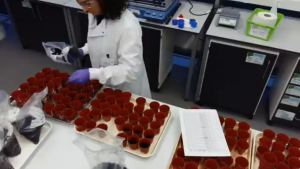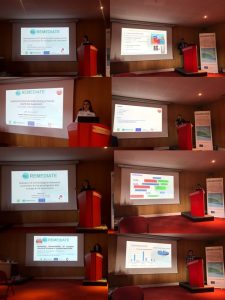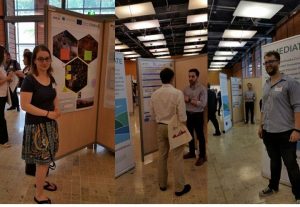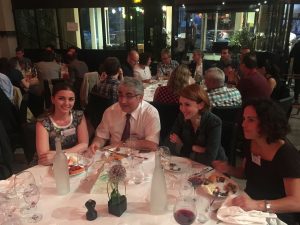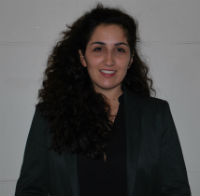Sabrina Cipullo
Working hard setting up experiments, getting the expected results, and publishing your work in great journals are all key goals for a researcher; however communicating your research outside academia it is also a professionally valuable experience. On the 6th of July I had the chance to present my research and learn more about the great work that they do at Cambridge Environmental Assessments (CEA).
CEA is located in the picturesque countryside location of Boxworth, in Cambridge. The Ecotoxicology team and Dr Adrian Terry (Head of CEA) were very kind to meet me and discuss my work. I was interested in understanding the implications of my research in the environmental sector, and to gain insight into the roles and responsibilities of different job/pathways outside academia.
During the last year of my PhD as part of Remediate I have been focused on linking the bioavailability of complex chemical mixtures to toxicity changes, providing multiple lines of evidence to inform risk management decisions at contaminated sites. I presented my work on an experimental setup where contaminated soils (collected from former gaswork sites) were treated with amendments (biochar or compost), incubated for 6 months, and their toxicity evaluated through different ecotoxicological assays. The CEA team was very engaged, asked a lot of questions, and provided valuable feedback on my work.
During the day, Dr Terry introduced me to the CEA team – which includes experts in environmental fate and behaviour, exposure and spatial modelling, ecotoxicology and toxicology- and explained the overall aim and objectives of the company.
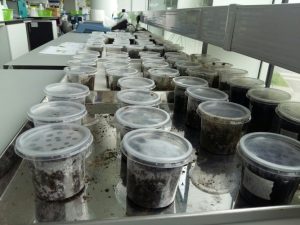
Dr Hanna Schuster presented the current work on over 200 outdoor aquatic mesocosms (flat-bottomed or sloped) to simulate different edge-of-field environments with a focus on plants and invertebrates (e.g. in-house identification of freshwater phytoplankton, periphyton, macrophytes, zooplankton, and macroinvertebrates). Hanna also guided me through the facility to visit their mesocosms setup for bespoke higher-tier aquatic studies.
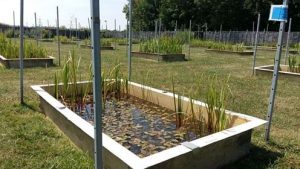
Dr Nadine Taylor presented a range of different work, including the very interesting research projects she developed during her PhD and postdoc using molecular high throughput techniques and physiological endpoints to determine ecosystem changes to environmental stress.
I would like to express my sincere thanks to the Remediate ITN for providing funding for my training and networking opportunities, and to Ecotoxicology team and Adrian Terry for hosting me at CEA and appreciating my research work. It was a great day for me to network and discuss my work with experts in the field, and hopefully future collaborations will arise from this meeting.
